First Aid: An Essential Skill
First aid is the immediate assistance or treatment given to someone who has been injured or is suddenly taken ill. It is the initial care provided for an acute injury or illness, with the aim of preserving life, preventing the condition from worsening, and promoting recovery.
Key Concepts in First Aid
- Assessment: The first step in providing first aid is to assess the situation and the injured or ill person. This involves checking for responsiveness, breathing, and circulation, and identifying any immediate dangers.
- Basic Life Support (BLS): BLS techniques, such as cardiopulmonary resuscitation (CPR), are crucial in situations where a person's breathing or heartbeat has stopped.
- Control of Bleeding: Knowing how to apply direct pressure, elevate the wound, and use a tourniquet if necessary can help prevent excessive blood loss.
- First Aid for Specific Injuries: Understanding how to treat burns, fractures, sprains, strains, and other common injuries is essential for providing effective first aid.
- Medical Emergencies: Recognizing the signs and symptoms of medical emergencies, such as heart attacks, strokes, and allergic reactions, and knowing how to respond appropriately is vital.
Study Guide
To effectively learn and understand first aid, consider the following study guide:
- Read and familiarize yourself with basic first aid techniques, such as CPR, bandaging, and treating burns.
- Practice scenarios where you have to assess a situation and provide appropriate first aid care.
- Review common medical emergencies and the corresponding first aid interventions.
- Take a first aid certification course to receive hands-on training and certification in first aid skills.
- Stay updated on any changes or advancements in first aid protocols and techniques.
Remember, being knowledgeable and prepared in first aid can make a significant difference in emergency situations, potentially saving lives and reducing the impact of injuries or illnesses.
.◂Science Worksheets and Study Guides Third Grade. Hands-on Lab Skills/Science Inquiry - 3rd grade
Study Guide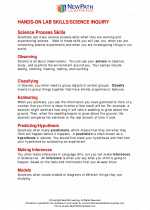 Hands-on Lab Skills/Science Inquiry - 3rd grade
Hands-on Lab Skills/Science Inquiry - 3rd grade  Worksheet/Answer key
Worksheet/Answer key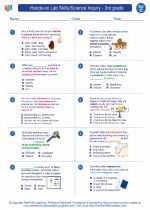 Hands-on Lab Skills/Science Inquiry - 3rd grade
Hands-on Lab Skills/Science Inquiry - 3rd grade  Worksheet/Answer key
Worksheet/Answer key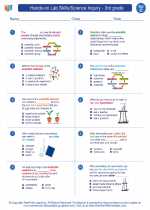 Hands-on Lab Skills/Science Inquiry - 3rd grade
Hands-on Lab Skills/Science Inquiry - 3rd grade  Worksheet/Answer key
Worksheet/Answer key Hands-on Lab Skills/Science Inquiry - 3rd grade
Hands-on Lab Skills/Science Inquiry - 3rd grade  Worksheet/Answer key
Worksheet/Answer key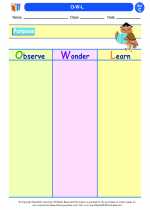 O-W-L
O-W-L  Vocabulary/Answer key
Vocabulary/Answer key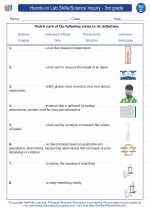 Hands-on Lab Skills/Science Inquiry - 3rd grade
Hands-on Lab Skills/Science Inquiry - 3rd grade  Vocabulary/Answer key
Vocabulary/Answer key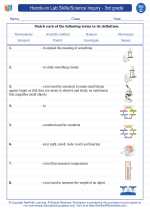 Hands-on Lab Skills/Science Inquiry - 3rd grade
Hands-on Lab Skills/Science Inquiry - 3rd grade 

 Worksheet/Answer key
Worksheet/Answer key
 Worksheet/Answer key
Worksheet/Answer key
 Worksheet/Answer key
Worksheet/Answer key
 Worksheet/Answer key
Worksheet/Answer key
 Vocabulary/Answer key
Vocabulary/Answer key
 Vocabulary/Answer key
Vocabulary/Answer key

The resources above cover the following skills:
Science as Inquiry and Process: A student should understand and be able to apply the processes and applications of scientific inquiry. A student who meets the content standard should:
Develop an understanding of the processes of science used to investigate problems, design and conduct repeatable scientific investigations, and defend scientific arguments.